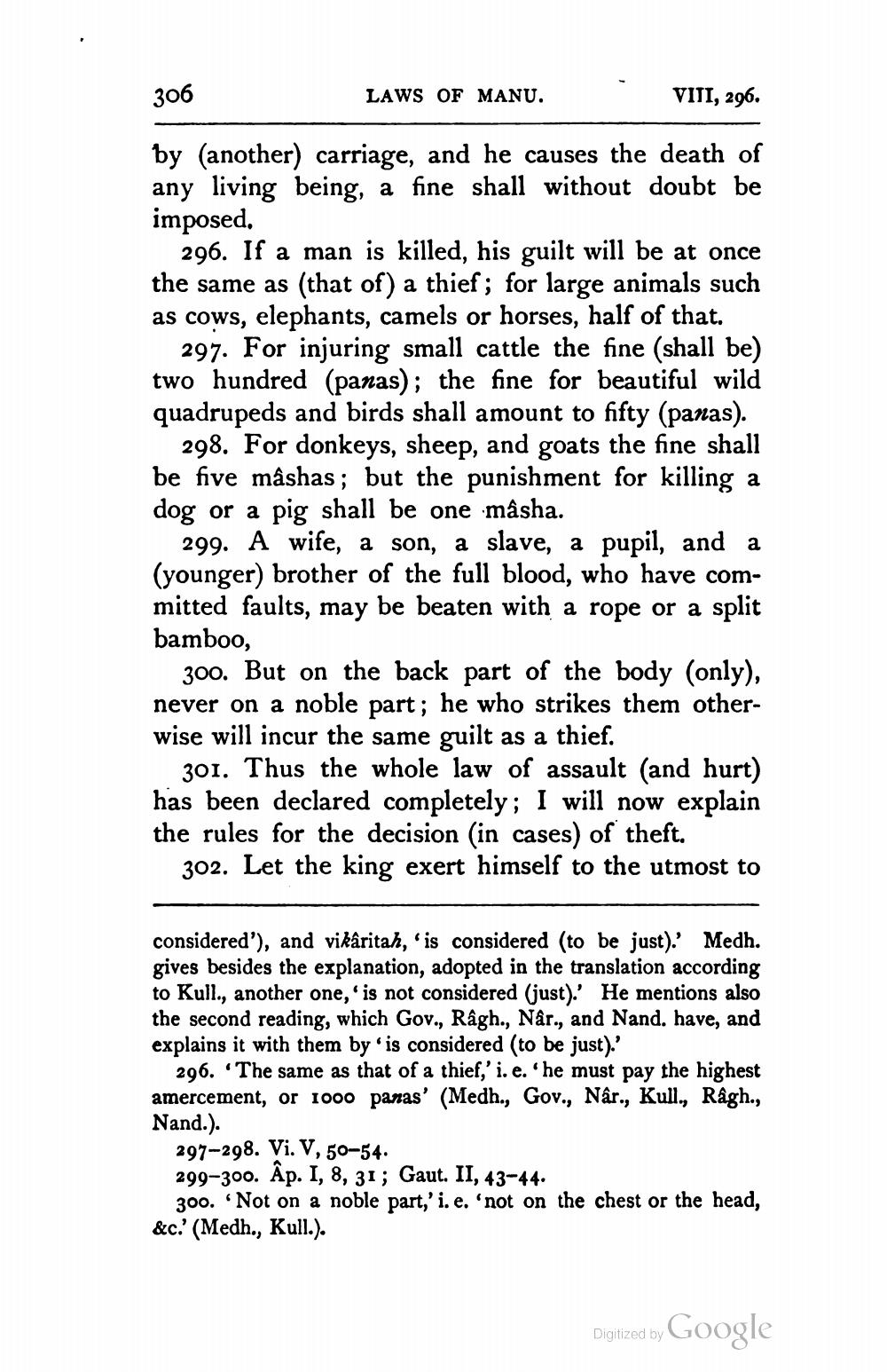________________
306
LAWS OF MANU.
VIJI, 296.
by (another) carriage, and he causes the death of any living being, a fine shall without doubt be imposed.
296. If a man is killed, his guilt will be at once the same as (that of) a thief; for large animals such as cows, elephants, camels or horses, half of that.
297. For injuring small cattle the fine (shall be) two hundred (panas); the fine for beautiful wild quadrupeds and birds shall amount to fifty (panas).
298. For donkeys, sheep, and goats the fine shall be five mâshas; but the punishment for killing a dog or a pig shall be one mâsha.
299. A wife, a son, a slave, a pupil, and a (younger) brother of the full blood, who have committed faults, may be beaten with a rope or a split bamboo,
300. But on the back part of the body (only), never on a noble part; he who strikes them otherwise will incur the same guilt as a thief.
301. Thus the whole law of assault (and hurt) has been declared completely; I will now explain the rules for the decision (in cases) of theft.
302. Let the king exert himself to the utmost to
considered'), and vikâritah, is considered (to be just).' Medh. gives besides the explanation, adopted in the translation according to Kull., another one, is not considered (just).' He mentions also the second reading, which Gov., Râgh., Når., and Nand. have, and explains it with them by 'is considered to be just).'
296. The same as that of a thief,' i.e. he must pay the highest amercement, or 1000 panas' (Medh., Gov., Nár., Kull., Râgh., Nand.).
297-298. Vi. V, 50–54. 299-300. Ap. I, 8, 31; Gaut. II, 43-44.
300. Not on a noble part,'i. e. 'not on the chest or the head, &c.' (Medh., Kull.).
Digitized by
Digitized by Google




